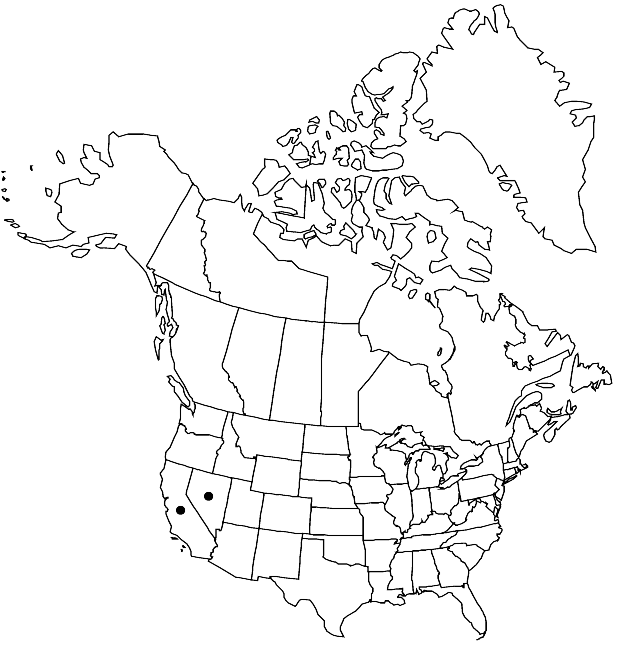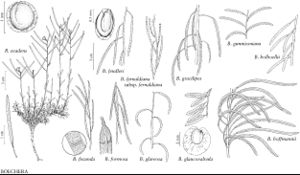Boechera glaucovalvula
Novon 13: 385. 2003.
Perennials; short- to long-lived; sexual; caudex usually not woody. Stems usually 1 per caudex branch, arising from center of rosette near ground surface, (0.6–)1–4.5 dm, densely pubescent proximally, trichomes short-stalked, 4–8-rayed, 0.1–0.4 mm, similarly pubescent distally. Basal leaves: blade linear to linear-oblanceolate, 2–4(–6) mm wide, margins entire, usually ciliate at petiole base, trichomes (simple or spurred), to 1.5 mm, surfaces densely pubescent, trichomes short-stalked, 4–8-rayed, 0.1–0.4 mm. Cauline leaves: 6–10, not concealing stem; blade auricles absent, surfaces of distalmost leaves densely pubescent. Racemes (5–)10–25-flowered, usually unbranched. Fruiting pedicels reflexed, strongly curved at base, 2–10 mm, pubescent, trichomes appressed, branched. Flowers divaricate at anthesis; sepals pubescent; petals light purple to lavender, 6–9 × 1.5–2.5 mm, glabrous; pollen ellipsoid. Fruits strongly reflexed, sometimes appressed to rachis, often secund, straight, edges parallel, (1.8–)2.5–4.5 cm × 5–8 mm; valves glabrous; ovules 24–62 per ovary; style 0.2–0.6 mm. Seeds biseriate, 5–6 × 4–5 mm; wing continuous, 1.8–2.5 mm wide. 2n = 14.
Phenology: Flowering Mar–Apr.
Habitat: Rocky slopes and gravelly soil, usually under shelter of desert shrubs
Elevation: 600-1600 m
Distribution

Calif., Nev.
Discussion
Boechera glaucovalvula, a distinctive sexual diploid that has the widest fruits in the genus, is known from Inyo, Mono, Riverside, and San Bernardino counties, California, and Clark and Nye counties, Nevada.
Selected References
None.
